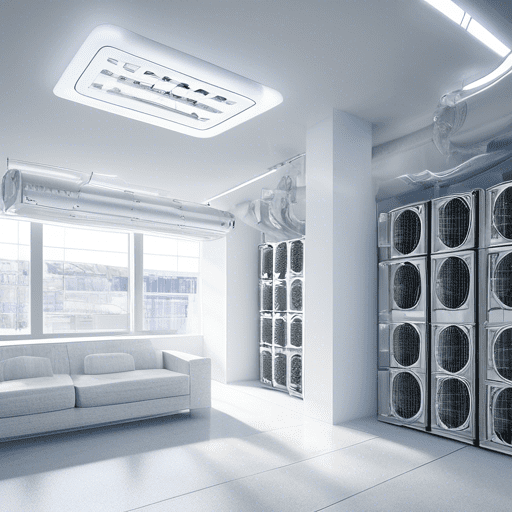Introduction Most restaurants in California release FOG (fat, oil, and grease) directly into the sewerage system. As a result, the

The world of HVAC (Heating, Ventilation, and Air Conditioning) design is in the midst of a green revolution, with renewable energy taking center stage. The future of HVAC design is increasingly shaped by innovations in renewable energy sources, leading to more efficient and sustainable systems. In this blog, we’ll explore the latest trends and technologies that are transforming HVAC design, from geothermal heat pumps to wind turbines and biomass boilers. With a focus on HVAC Design, Mechanical Design, and MEP Design, InnoDez Engineering is at the forefront of these exciting developments.
Geothermal heat pumps are a promising technology that taps into the consistent temperatures found underground. These systems circulate fluid through a network of buried pipes to exchange heat with the Earth. They provide highly efficient heating and cooling, reducing energy consumption and greenhouse gas emissions. As a long-term investment, geothermal heat pumps promise substantial cost savings.
Wind turbines are not limited to producing electricity; they can also contribute to HVAC systems. Wind-powered ventilation systems use the kinetic energy of the wind to drive air exchange. By harnessing the power of the wind, buildings can enhance indoor air quality and reduce reliance on traditional HVAC systems.
Biomass boilers burn organic materials like wood pellets, agricultural residues, and even algae to produce heat. These boilers offer a sustainable alternative to conventional fossil fuel systems. They are particularly advantageous in rural areas where biomass materials are readily available.
The concept of net-zero energy buildings is gaining traction in HVAC design. These buildings generate as much energy as they consume, thanks to a combination of energy-efficient design, on-site renewable energy generation, and grid connectivity. Net-zero buildings are a testament to sustainable and energy-efficient HVAC design.
Smart grids are revolutionizing the way buildings interact with the energy grid. They allow HVAC systems to adapt to real-time energy prices and demand, optimizing energy consumption and reducing costs. By integrating with smart grids, HVAC systems can operate efficiently while minimizing the environmental impact.
InnoDez Engineering is committed to staying at the forefront of HVAC design innovations, particularly those involving renewable energy sources. Our expertise in HVAC Design, Mechanical Design, and MEP Design ensures that your projects benefit from the latest technologies and trends, creating sustainable, cost-effective, and efficient HVAC systems.
The future of HVAC design is undeniably intertwined with renewable energy. Innovations such as geothermal heat pumps, wind turbines, and biomass boilers are revolutionizing the way we heat, cool, and ventilate our buildings. Net-zero energy buildings and smart grids are setting new standards for energy efficiency. InnoDez Engineering is your partner in embracing these exciting developments, ensuring that your HVAC systems are not only environmentally friendly but also cost-effective and sustainable. As the green revolution in HVAC design continues to unfold, the future is looking brighter than ever.
About Author
InnoDez